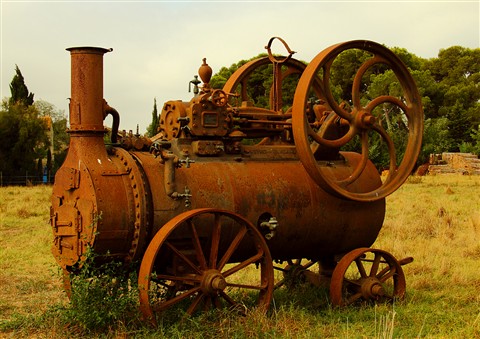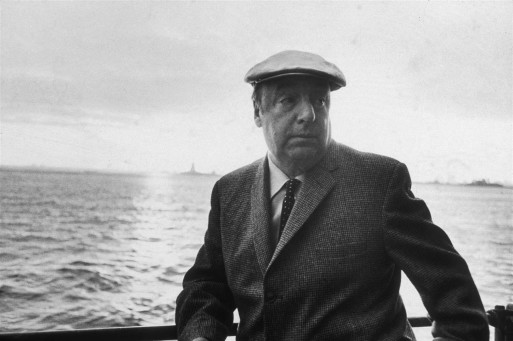
Credit: dpreview.com
Pablo Neruda is a great master of understatement, weaving the sparest details around the complexity of loss with a cry that carries its own weight and does not ask to be comforted. The first four lines of his poem “A Dog Has Died” induct us into his trademark factual approach:
My dog has died.
I buried him in the garden
next to a rusted old machine.
Some day I’ll join him right there
Nerdua seems to reject sentimentality completely, shunning the fetishization of the corpse for a sober reflection on his own mortality. And yet, he imagines a gentler universe for his beloved companion, and almost dares to include himself in it.
I, the materialist, who never believed
in any promised heaven in the sky
for any human being,
I believe in a heaven I’ll never enter.
Yes, I believe in a heaven for all dogdom
where my dog waits for my arrival
waving his fan-like tail in friendship.

Credit: positively.com
While careful to not romanticize anything, the poet offers proper praise here, which honors a relationship between two beings with their own identities. Neruda’s friend was “never servile,” and “with no exaggerations.” It is the patience and acceptance of their journey together that he remembers with fondness and in recognition of the teacher in his companion:
my dog used to gaze at me,
paying me the attention I need,
the attention required
to make a vain person like me understand
that, being a dog, he was wasting time,
but, with those eyes so much purer than mine,
he’d keep on gazing at me
with a look that reserved for me alone
all his sweet and shaggy life,
always near me, never troubling me,
and asking nothing.
This symbiosis is, to Neruda, more valuable than co-dependency, which is so often mistaken for love. Without the emotional complexity of human relationships, the time spent with his dog went deep into the heart of the present moment, yet still demanded an understanding, beyond attachment, that each moment must naturally and inevitably come to an end. “There are no good-byes for my dog who has died,” he reflects, “and we don’t now and never did lie to each other.” He ends his epithet celebrating a life lived passionately:
Joyful, joyful, joyful,
as only dogs know how to be happy
with only the autonomy
of their shameless spirit.

Pablo Neruda
(Credit: nbcnews.com)
It is this fullness and reality of life and death that needs no more elaboration, no more praise, and asks nothing of anyone but to take this example to heart. Death, loss, and grief are just as much a reality as was the “joyful” and “shameless” spirit of Neruda’s dog. This reality is clear as can be, as is the imprint it has left behind.
So now he’s gone and I buried him,
and that’s all there is to it.

 “A Dog Has Died” by Pablo Neruda
“A Dog Has Died” by Pablo Neruda


 Forest Bathing Eases Grief by Soaking in Nature
Forest Bathing Eases Grief by Soaking in Nature
 The Spiritual Symbolism of Cardinals
The Spiritual Symbolism of Cardinals
 Meaning-Focused Grief Therapy: Imaginal Dialogues with the Deceased
Meaning-Focused Grief Therapy: Imaginal Dialogues with the Deceased















This was really helpful… Thanks a lot! But I think you missed out on this stanza:
Ai, I’ll not speak of sadness here on earth,
of having lost a companion
who was never servile.
His friendship for me, like that of a porcupine
withholding its authority,
was the friendship of a star, aloof,
with no more intimacy than was called for,
with no exaggerations:
he never climbed all over my clothes
filling me full of his hair or his mange,
he never rubbed up against my knee
like other dogs obsessed with sex.
Report this comment
Thanks a lot, it really helped me or else I’d had failed in exam.
Report this comment
Yet another splendid fart very very smellyyyyyy & stinky
Ewwwwww
Report this comment